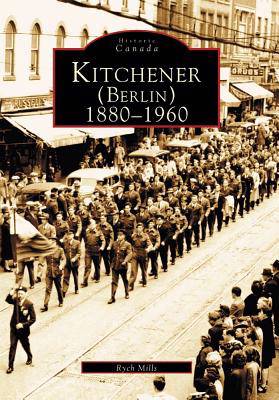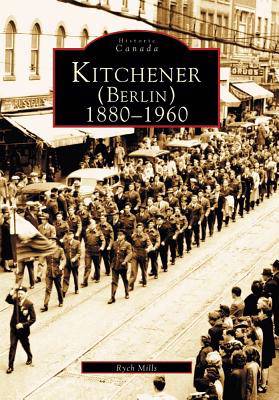
- Afhalen na 1 uur in een winkel met voorraad
- Gratis thuislevering in België vanaf € 30
- Ruim aanbod met 7 miljoen producten
- Afhalen na 1 uur in een winkel met voorraad
- Gratis thuislevering in België vanaf € 30
- Ruim aanbod met 7 miljoen producten
Zoeken
Omschrijving
Kitchener, Ontario, is a community with two histories. As Berlin, it was a rapidly growing and prosperous town reveling in its Germanic heritage. After dramatic civic upheavals from 1915 to 1919, it emerged, somewhat bruised, as Kitchener. From a twenty-first-century viewpoint, there often appears to be a disconnection between the two. Kitchener
(Berlin): 1880-1960 challenges this perception and bridges the two histories. Using mostly unpublished photographs, many from the Waterloo Historical Society's collection, the author captures the town that was and the city that is. Kitchener (Berlin): 1880-1960 brings to life many long-gone treasures,
such as the classic city hall, the post office, and the sugar factory. William Lyon Mackenzie King, Canada's longest-serving prime minister, is seen during his hometown visits. Famous, as well as less familiar, individuals are captured, including Breithaupt and Bailey, Ahrens and Timm, Schmalz and Peoli, and Euler and Izma. This history also welcomes the reader to explore such questions as who was the father of Canadian soccer, who really turned on the first hydropower in 1910, who were Big Charlie and Pop, and what was the Committee-of-One?
(Berlin): 1880-1960 challenges this perception and bridges the two histories. Using mostly unpublished photographs, many from the Waterloo Historical Society's collection, the author captures the town that was and the city that is. Kitchener (Berlin): 1880-1960 brings to life many long-gone treasures,
such as the classic city hall, the post office, and the sugar factory. William Lyon Mackenzie King, Canada's longest-serving prime minister, is seen during his hometown visits. Famous, as well as less familiar, individuals are captured, including Breithaupt and Bailey, Ahrens and Timm, Schmalz and Peoli, and Euler and Izma. This history also welcomes the reader to explore such questions as who was the father of Canadian soccer, who really turned on the first hydropower in 1910, who were Big Charlie and Pop, and what was the Committee-of-One?
Specificaties
Betrokkenen
- Auteur(s):
- Uitgeverij:
Inhoud
- Aantal bladzijden:
- 128
- Taal:
- Engels
- Reeks:
Eigenschappen
- Productcode (EAN):
- 9780738511511
- Verschijningsdatum:
- 3/12/2002
- Uitvoering:
- Paperback
- Formaat:
- Trade paperback (VS)
- Afmetingen:
- 166 mm x 240 mm
- Gewicht:
- 294 g

Alleen bij Standaard Boekhandel
+ 69 punten op je klantenkaart van Standaard Boekhandel
Beoordelingen
We publiceren alleen reviews die voldoen aan de voorwaarden voor reviews. Bekijk onze voorwaarden voor reviews.








